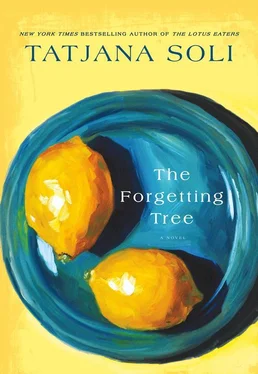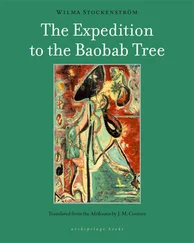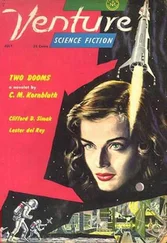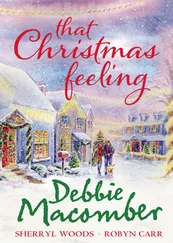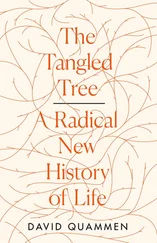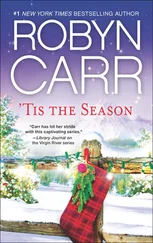* * *
Claire’s eyes matched the pale of the foreign sky. Although she was sick, her daughters only thought of going away, tending their own wounds and interests. To them, too, the sweet of their own blood didn’t matter. Marie would be the one to stay. She would be the devoted daughter that she could not be to her own maman . They thought she was one of them because she talked like a little Englishwoman, like the queen herself. The rain in Spain stays mainly in the plain . She talked as if gold coins were dropping out of her mouth.
* * *
After everyone had left the farm, Marie could finally feel peace. She heard the breathing of the trees in the morning and felt the slow, dry bake of the earth in the afternoon. The sun was again like a sweet orange in the sky, and the moon hung high like a crisp sheet. All the days were buttery. She had not known such happiness since she was a girl in her maman ’s arms. She assumed Claire’s silence about her past, about the small mistakes in her story, was a form of acceptance, and Marie’s care was a form of love.
She mopped the floors and washed the dishes and went to the store where she could buy as much food as would fit in the kitchen. No one cared, no one watched over her. A crime, but there were no punishments, not even a harsh word. She wiped the windows and made the beds and picked up each book on the shelves to read just one page. If she lived to one hundred, she would not have time to read all the books in that house. This was eternity, but she had not died yet or become angel.
Claire and she lived together, and she was content. It was as if two people shared the same life. Inside this life, it was impossible to believe the hate of the world outside. That must be what it meant to be protected. When Claire grew sick, Marie hurt because Claire was like her own maman . It pained her that Claire couldn’t enjoy all the riches in her life. But Marie reminded herself Claire would get better. And once she did, there would be no more need for Marie.
In America she would never get over how many things each person had. The same dress served a woman at home to marry, christen her children, and then be buried in. Here one person owned more plates and cups, more knives, forks, and spoons, more dresses and oranges and books, more shoes, than the person would ever know, or miss. Cleaning, wiping, worrying over Claire’s things, made her dizzy — so Marie took them. Claire would never know or care.
Those months of living on the ranch were the happiest in Minna’s life. They lived surrounded by trees, and she felt Maman ’s spirit. She gorged each day on sweet kindness, and the salt slowly leached out of her. Claire cared so little about Marie’s blackness that for the first time she knew what it must be to be white. To not have to think of skin color at all. Marie forced herself to look in the mirror each day and remind herself she was still poor, she was still black.
* * *
In the months of living with Claire, Marie grew a relationship, even a kinship, with the objects under her charge. Touching each thing, she felt richer. She thought of cleaning as a meditation each day: she mopped floors and vacuumed Persian carpets; feather-dusted the piano, shuddering the black and white keys; ran a rag over mica lamps and Chinese vases; plumped pillows on the sofa into inviting shapes. She pretended she was a novitiate, and these were her tools toward salvation, but with time this feeling began to grow smaller, meaner. With time, she was no longer in awe of these objects and grew tired of them, in the way one gets with things of too little value compared to what one thinks one deserves.
Marie cleaned less and less, and finally skipped the dining room altogether, with its large crack down the center leaf of the oak table, the showiness of the bright colors in the Chinese vase that she learned from the antiques dealer showed it was a cheap reproduction. The china cabinet with its stacks of eggshell-thin plates. Wasn’t whoever bought these things trying to put on airs? No one had eaten in the room since she had lived here. She left the mica lamps unplugged because they were so poorly wired they were fire hazards; she decided they should drink out of jelly jars because the English Staffordshire coffee cups had handles so brittle they snapped off under the least pressure like bird wings.
The sagging sofas in the living room, the tarnished brass coatrack in the hall, the dusty rows of crystal in the bar, turned out to be lies because Claire never used them. Barren things whose only human contact was Marie in cleaning them, and then cleaning them once more.
When the crew Forster hired came to clear out the charred trees, Marie paid them extra to move the dining-room table and chairs, the china cabinet, the sofas, and the piano into the barn.
* * *
Claire was weak as a small bird after the radiation, and they spent the hot days after the fires outside under the zabokas, marooned on lounge chairs in the hot shadows. Don came and sat on the porch looking hangdog. Tante had been wrong about her making babies. Marie knew this thing tugging inside her was because of him, and he would start feeling he owned it and her. If she knew one thing in this world, it was that she would never be owned again. She told Claire to make him go away, that she couldn’t stand looking at him anymore.
“But what about our weekend in Santa Barbara? I don’t understand,” he said.
“What about it?”
He looked at her belly and said he wanted to marry her. That would go away if he knew the truth of what she had been. All these spoiled people in love with their lies. Or maybe he was the rescuing type, but she had no interest in being rescued. He turned angry and said he couldn’t live without her anymore, as if she were his bad drug or something. Menti, liar! Marie laughed and laughed in his face, never hearing anything so ridiculous.
* * *
Claire backed away from life as she always did when it wasn’t to her liking. She read that novel over and over with a dreamy look on her face, as if it were going to reveal some truth she wouldn’t get at by just looking around her. She would understand me, Marie thought, if I were a character in a book.
Marie wanted to shake her by the shoulders until all the illusions came rattling out. Instead she peeled an orange, feeding Claire a section at a time, the sight of the juice on her fingers making her nauseated.
“I can’t eat any more,” Claire said, and rolled away.
“You must.” But Marie gave up, threw the rest of the fruit under a bush.
“I don’t understand these women Rhys writes about. They’re so destructive. Why don’t they just ask for help?”
“Life’s a lot harder than books.”
“You’re not listening to me.”
“No, I’m not.” Marie closed her eyes.
“I understand about hiding things. People can be cruel.”
That opened Marie’s eyes. “What would you know about that, silly Claire?”
“She writes about the colonials on the island.”
Marie shrugged. “I didn’t know those people so well. Those were the old-timers. Tucked away in their pink houses. Reading Austen and Brontë. They didn’t mix.”
“Your pink house?”
Marie forgot her lie about the pink house being hers. “We were isolated.”
“You never talk of home — it’s like you’ve forgotten it.”
“I’m not a forgetting person.”
* * *
Forster kept calling, kept circling. No one cared until someone else did. Marie told Claire to go have lunch and get him away. She used the time alone to call the antiques dealer in the paper, who came with a checkbook and took away the French bombé chest in the entry hall with its paw feet and gilded corners. The man had roving eyes, and he lit on the dark armoire in the living room. Marie hated it because it was so tall and hard to clean. The carved animals on it gave her the frights, especially the bears with gaping mouths. The dust always pooled in the bottom of their maws. The man nodded, and she said why not. A fat check for five thousand dollars deposited in her checking account that afternoon. Later she found out the haul was worth more like twenty thousand.
Читать дальше
